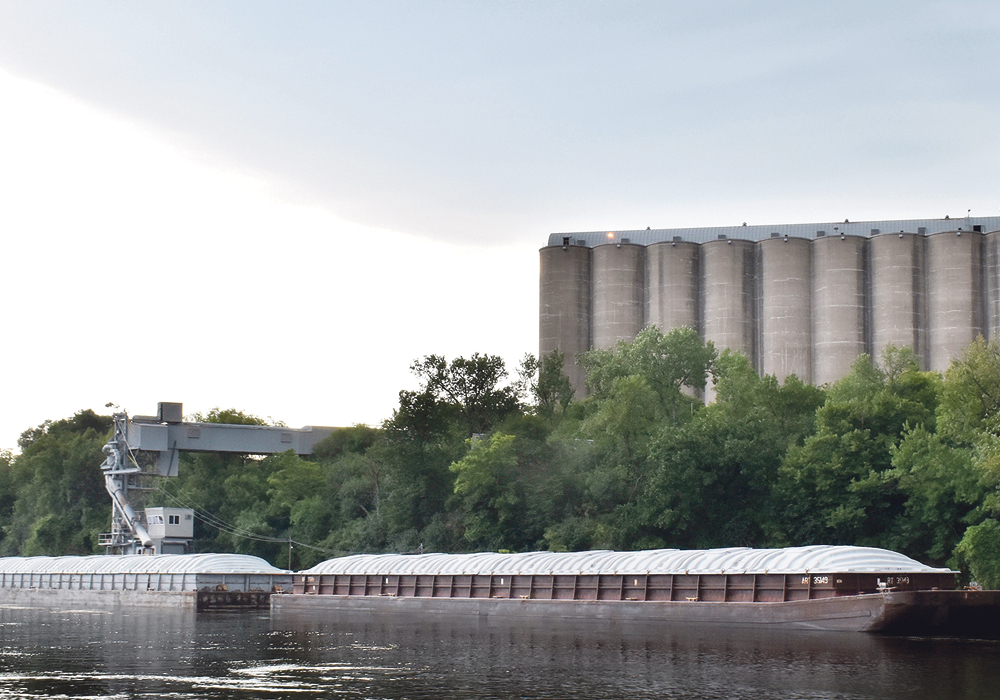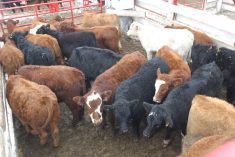Canadian grain industry officials don’t feel threatened by United States President Donald Trump’s attempts to usurp more of the Japanese grain market.
Trump has directly asked Japanese Prime Minister Shinzo Abe to buy a “huge amount” of agricultural products from the United States as a good faith gesture leading up to bilateral trade negotiations between the two nations.
Reuters reports that Trump wants Japan to buy “several hundred million dollars” of specific products such as soybeans and wheat.
Japan is considering how to respond to the request. One idea being floated is to buy the farm products as food support for African nations, according to Reuters.
Read Also

Critical growing season is ahead for soybeans
What the weather turns out to be in the United States is going to have a significant impact on Canadian producers’ prices
Japan was Canada’s third-largest wheat customer through the first 10 months of the 2018-19 crop year, buying 1.46 million tonnes of the crop.
It typically purchases around $500 million worth of Canadian wheat annually.
It was also the third-biggest market for U.S. wheat with sales of 2.78 million tonnes in 2018-19.
Gunter Jochum, president of the Western Canadian Wheat Growers Association, said any time a competitor talks about taking away business in a key market it’s a concern.
But in this case, he isn’t too worried.
“I take that with a grain of salt and the reason is because Donald Trump is a disrupter,” he said.
Japanese buyers want a consistent and reliable supply of top quality milling wheat. Trump is anything but consistent and reliable.
“He is known to pull out of trade agreements. He is known to disrupt trade. He has made it clear that if he doesn’t like something all of the sudden he will just tear it up,” said Jochum, who farms near Winnipeg.
“It all boils down to how trustworthy a trade partner the U.S. is with Donald Trump in charge.”
He is also comforted by the fact that Japan has had a decades-long relationship with Canada and cherishes the top quality wheat it produces. That’s why he isn’t overly concerned about Trump’s wheeling and dealing.
“I’m sitting right here combining No.1 hard red spring wheat that is high protein wheat. It is very, very good quality (with) no fusarium in it. And I’m sure our customers all over the world will want exactly that,” said Jochum.
He also noted that Canada and Japan are part of the Comprehensive and Progressive Agreement for Trans-Pacific Partnership, that came into effect Dec. 30, 2018. The U.S. is not.
That means that starting April 1, Canadian and Australian wheat face 12 percent lower tariffs than U.S. wheat into Japan and that disparity will continue to grow over the next eight years unless the U.S. negotiates a bilateral trade pact with the country.
Neither the National Association of Wheat Growers (NAWG) nor the U.S. Wheat Associates issued a news release regarding Trump’s call for increased Japanese purchases of U.S. wheat and soybeans.
But the comments he made the same day during a speech on energy in Pennsylvania elicited a quick response.
“I told Prime Minister Abe … great guy … I said, ‘listen, we have a massive deficit with Japan.’ They send thousands and thousands … millions … of cars. We send them wheat. Wheat,” Trump said, prompting laughter from his audience.
“That’s not a good deal. And they don’t even want our wheat. They do it because they want us to at least feel that we’re OK. You know, they do it to make us feel good.”
That prompted a Twitter response from NAWG.
“Mr. President, Japan is the #1 market for US wheat exports on average, where we hold just over 50% of the market. They don’t buy our wheat because, ‘they want us to feel okay.’ They buy it because it’s the highest quality wheat in the world. That’s not fake news.”


















